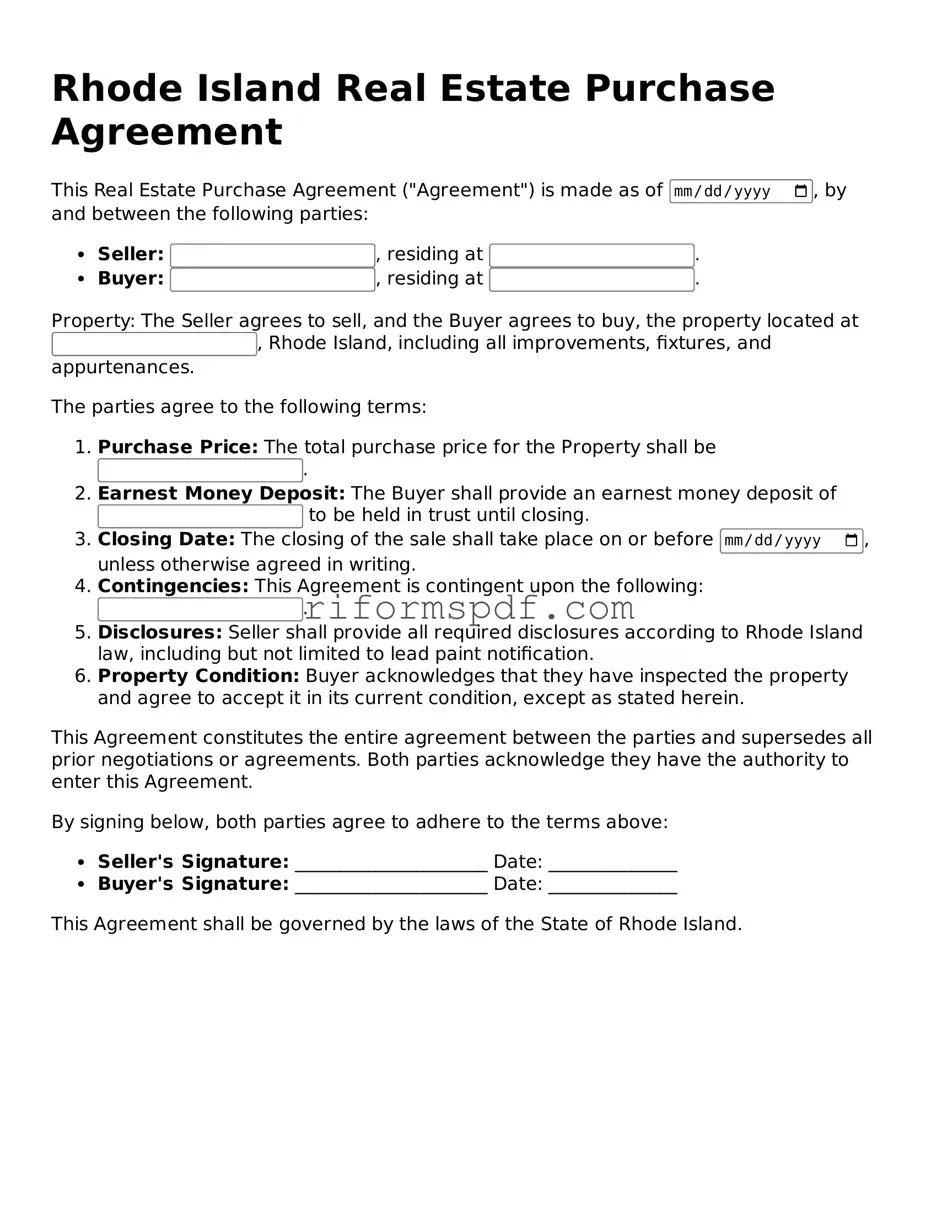Printable Real Estate Purchase Agreement Form for Rhode Island
The Rhode Island Real Estate Purchase Agreement is a legal document that outlines the terms and conditions of a property sale between a buyer and a seller. This form serves as a crucial tool in the real estate transaction process, ensuring that both parties understand their rights and obligations. By clearly detailing the specifics of the sale, it helps to facilitate a smoother and more transparent transaction.
Launch Editor

Printable Real Estate Purchase Agreement Form for Rhode Island
Launch Editor
Finish the form now and be done
Edit Real Estate Purchase Agreement online and skip the paperwork.
Launch Editor
or
⇓ PDF Form
